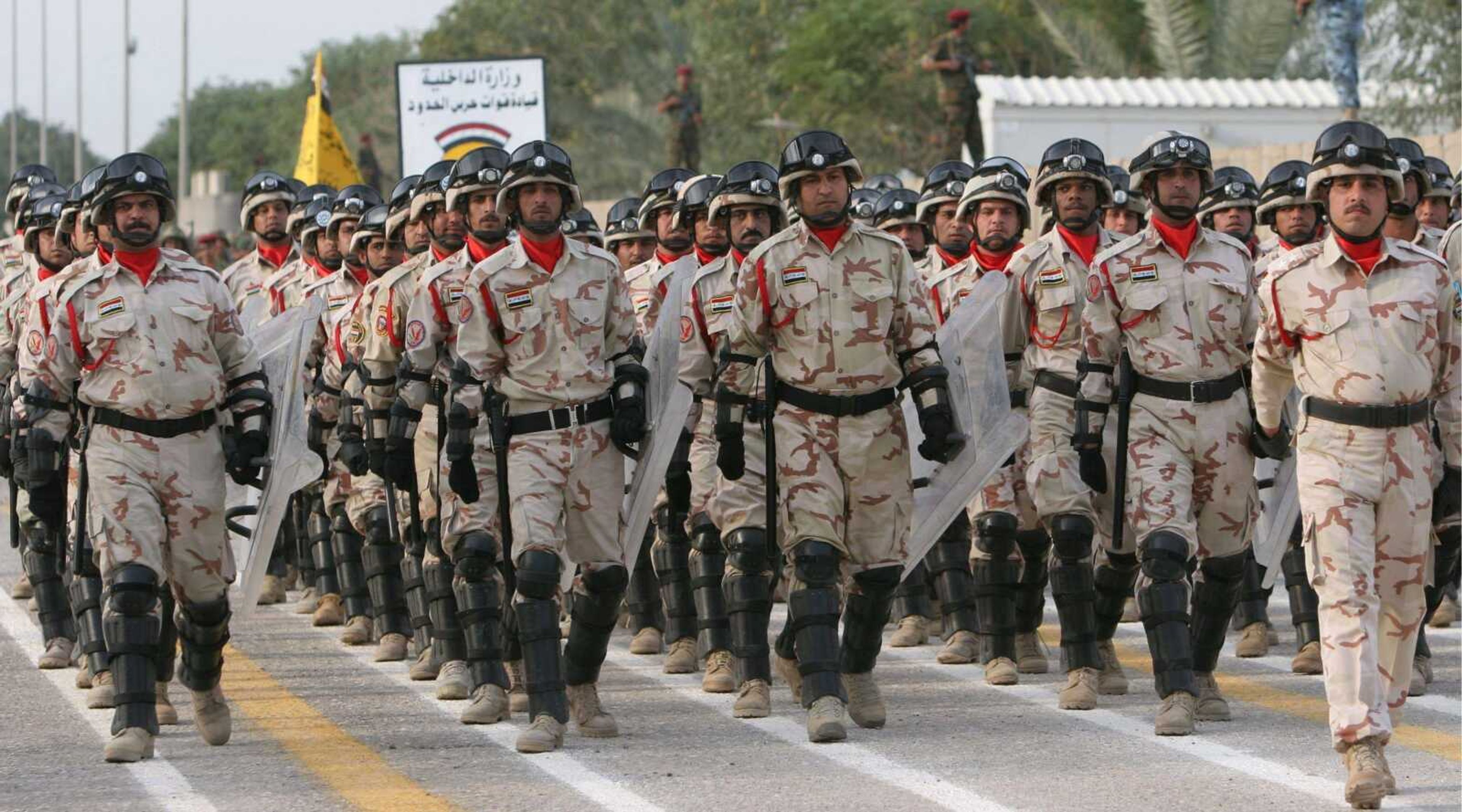U.S. general: Iraq violence levels lowest since first year of American invasion
BAGHDAD -- Violence in Iraq is at its lowest levels since the first year of the American invasion, finally opening a window for reconciliation among rival sects, the second-ranking U.S. general in Iraq said Sunday as Iraqi forces formally took control of security across half the country...
~ He attributed the change to an increase in both American troops and better-trained Iraqi forces.
BAGHDAD -- Violence in Iraq is at its lowest levels since the first year of the American invasion, finally opening a window for reconciliation among rival sects, the second-ranking U.S. general in Iraq said Sunday as Iraqi forces formally took control of security across half the country.
Lt. Gen. Ray Odierno, the man responsible for the ground campaign in Iraq, said the first six months of 2007 were probably the most violent period since the U.S.-led invasion in 2003. The past six months, however, had seen some of the lowest levels of violence since the conflict began, Odierno said, attributing the change to an increase in both American troops and better-trained Iraqi forces.
"I feel we are back in '03 and early '04. Frankly, I was here then, and the environment is about the same in terms of security in my opinion," he said. "What is different from then is that the Iraqi security forces are significantly more mature."
Violence killed at least 27 Iraqis on Sunday -- 16 of them members of a U.S.-backed neighborhood patrol killed in clashes with al-Qaida in a volatile province neighboring Baghdad. Thirty-five al-Qaida fighters also died in that fighting, Iraqi officials said.
Odierno said Anbar province, once plagued by violence, only recorded 12 attacks in the past week, down from an average of 26 per week over the past three months.
"The violence last week was the lowest ever," he said of Anbar.
"So that kind of defines 2007 very simply. A long hard fight and a lot of sacrifice by a lot of soldiers, Marines and airmen to get there," Odierno said.
A planned reduction of troops to about 130,000 at the end of next year from a high of around 165,000 at the height of the "surge" should not derail that effort, but Iraq's government must take advantage of the improved security, Odierno said. There are 154,000 U.S. troops in Iraq now.
"We have a window, I don't know how long that window is, but there is a window because of the security to move forward," Odierno told a small group of journalists at his headquarters in Baghdad. "We need to get policies in place by the central government to do this."
One of the most important, he said, was a draft bill to ease curbs implemented against former supporters of Saddam Hussein's Baath Party in the aftermath of the 2003 invasion.
The U.S.-led coalition has been gradually transferring control of security to the Iraqi government and Britain's handover of southern Basra was the latest in a series that began in July 2006. The coalition retains control over half of Iraq's 18 provinces, including Anbar and central areas where violence has flagged but not stopped.
"This is a step toward resuming security responsibilities in all of Iraq's provinces that is due in the middle of next year," Iraqi National Security adviser Mouwaffak al-Rubaie said in Basra. He represented Prime Minister Nouri al-Maliki at the handover ceremony in the capital of the oil-rich region.
In Diyala, one of Iraq's most dangerous regions, al-Qaida militants tried to regain control of several villages around Khalis, 50 miles north of Baghdad, but the U.S. backed volunteers drove them away, said Abdul Karim al-Rubaie of the provincial command center.
Sunnis have been turning against al-Qaida in significant numbers and signing up for the volunteer security forces -- partly in disgust at the militant group's brutal tactics, and partly to seek American protection against what they see as government-backed Shiite militias.
"It is a battle of life and death, it is a continuous fight until we cleanse all the villages on the outskirts of Khalis," said Sheik Zuhair al-Obeidi, who was involved in Sunday's fighting.
Next summer is more than half a year longer than President Bush's prediction in January that Iraq would assume control all of its provinces by November. Giving responsibility to the Iraqi army and police does not necessarily mean that violence will abate in Basra, where rival Shiite parties and militias have fought for control of the province.
"This remains a violent society whose tensions need to addressed, but they need to be addressed by Iraqi political leaders," British Foreign Secretary David Miliband, who also attended the handover ceremony, told the British Broadcasting Corp.
Gen. David Petraeus, the top American commander in Iraq, said in a joint statement with U.S. Embassy Deputy Chief of Mission Patricia A. Butenis, that Iraqi forces "have demonstrated their readiness to assume responsibility for the provincial security. Today this responsibility is theirs."
British troops will not immediately leave southern Iraq but will instead remain at their base just outside the city. This is know by the military as "operational overwatch," in which Iraqi security forces and civilian police take responsibility under a provincial governor, or other official, and coalition forces are held in reserve in bases that are spread out -- intervening when necessary or when asked.
The next phase would involve a hand over at a national level -- which could then set stage for a large-scale withdrawal of all foreign troops a few years later.
Connect with the Southeast Missourian Newsroom:
For corrections to this story or other insights for the editor, click here. To submit a letter to the editor, click here. To learn about the Southeast Missourian’s AI Policy, click here.










